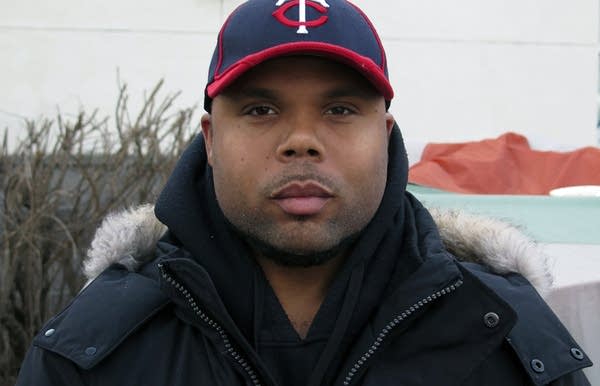Demonstrations over police killing of Jamar Clark enter 2nd week

Go Deeper.
Create an account or log in to save stories.
Like this?
Thanks for liking this story! We have added it to a list of your favorite stories.
U.S. Department of Justice attorneys are in the Twin Cities Monday to conduct a civil rights investigation, as demonstrations over the police killing of a 24-year-old African-American man by Minneapolis police enter a second week.
The lawyers are expected to discuss the possible release of video that may show the shooting.
They've been camped out there since last Sunday. That's when a police officer shot and killed Jamar Clark outside an apartment building down the street.
Late Sunday morning the mood was much more relaxed than the previous week. Dozens of people kept warm by campfires as others set up propane heaters and sorted through donated food and winter clothing.
Turn Up Your Support
MPR News helps you turn down the noise and build shared understanding. Turn up your support for this public resource and keep trusted journalism accessible to all.

Devonne Mayweather, 29, was among the protesters who've been spending the night here. Like everyone else, Mayweather is demanding that state investigators release video of the incident. Mayweather says Clark did not have a gun and police could have subdued him without taking his life.
"It was an excuse to shoot him in the head," he said. "He had no right to shoot him in his head. He was executed."
Some witnesses say Clark was handcuffed when he was shot. Bob Kroll, a Minneapolis police lieutenant and president of the police union, says that's not true. Kroll says Clark was not handcuffed and tried to grab one officer's gun before another fired the fatal shot.

Betty Harpole, 79, has not been among the overnighters at the 4th Precinct. But Harpole says she's been outside every day to lend her support to demonstrators five and six decades her junior. Harpole says the protest is not only about Clark's death, but also the racism that African-Americans have endured for centuries.
"A lot of this was going on before I was born," she said. "And it went on during the time when I was growing up. And it's still going on. You wonder, when does it stop? I'd like to go on record as declaring white privilege as a form of bullying ... and it's time that it stop."
Clashes between African-Americans and police have prompted other protests recently in the Twin Cities. In September, Black Lives Matter demonstrators shut down the Green Line after they say Metro Transit police used excessive force in arresting a 17-year-old boy with autism at a light rail station.
And in St. Paul, calls to overhaul the police civilian review commission were prompted in part by officers' Tasering of a black man in the downtown skyway in early 2014.
While these high-profile incidents get the lion's share of attention, many African-Americans also say they feel disrespected during nonviolent encounters with police. Last year officers stopped and frisked a group surveying residents in north Minneapolis about a proposed greenway. No one was arrested, but the canvassers said they felt embarrassed and shaken up.
Black Lives Matter organizer Lena Gardner says these are some of the broader issues underpinning this latest protest.
"We are really dedicated to improving the lives of black Minnesotans," she said. "We are dedicated to long-term systemic and structural change and we also think it's really important that there's a cultural shift where we start to understand that the black community is not disposable."
As the group plans its next steps, Gardner says she is hopeful that the video of Clark's death will be made public soon. But she couldn't say if releasing that video will mean demonstrators will break camp at the 4th Precinct.



